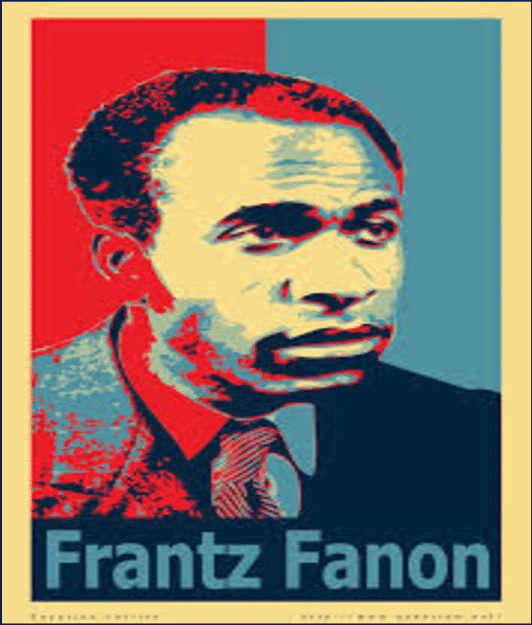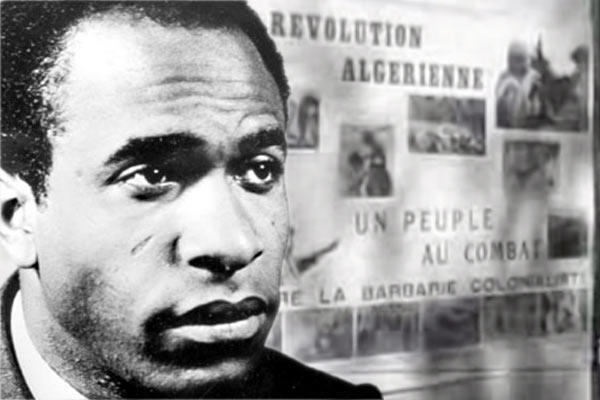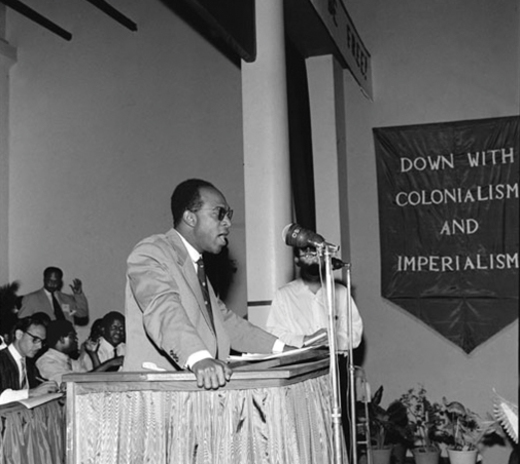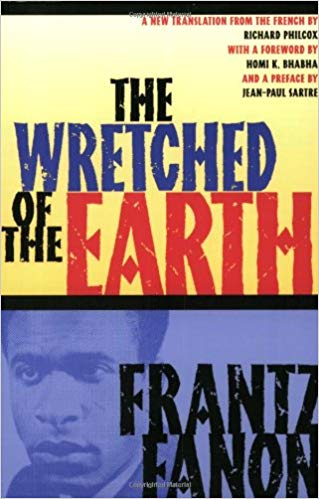
“The basic confrontation which seemed to be colonialism versus anti-colonialism, indeed capitalism versus socialism, is already losing its importance. What matters today, the issue which blocks the horizon, is the need for a redistribution of wealth. Humanity will have to address this question, no matter how devastating the consequences may be.”
― The Wretched of the Earth
Here is a short documentary about Frantz Omar Fanon. You need to see it.
Especially because in the 21st century, most of us do not read. We are consumed by and with the convenience of the internet. And if not consumed, we are oriented toward the internet for the bulk of both our entertainment and education; to enjoy ourselves and to learn about the world we live in. But if one is serious about life, we ought to supplement the easily accessed internet with selected literature that both exposes us to what we don’t know as well as challenges us to struggle to learn more than we already know.

To most of us Frantz Fanon is just a name. There are few pictures. No generally available recordings that I know of. And, although lionized in selected intellectual circles, as far as the general public is concerned, in the 21st century there are only superficial mentions of Fanon’s ideas in contemporary publications. So here are both a video and a recent collection of Fanon’s writings, to supplement his major works popularly available. The video and book combination also serve as critical tools for those interested in a serious study of Frantz Fanon the writer beyond Frantz Fanon the t-shirt icon.

The man from Fort-de-France, Martinique became a psychiatrist for the world. Not just the so-called third world, mind you, but the entire of this spinning blue and green spheroidal-shaped cosmic object we call planet earth. Fanon trained as a physician focusing on the mentally ill. While serving in the French administration he was assigned to Algeria. He eventually joined the Algerian liberation movement and became an ambassador of the tri-continnetal struggle of Africa, Asia and Latin America. At the same time he was adopted as a prophet among radical European and American intellectuals and activists.
Fanon’s name, work, and writings rivaled any theorist of revolution, including Marx, Lenin, and Mao. His intellectual depth was staggering in the mix of philosophical profundity and revolutionary relevance. He was the one who taught us that when guided by conscious theory grounded in social reality, violence could be revolutionary and not just reactionary.
His life was short. July 20, 1925 – December 6 – 1961, not even a proverbial forty years. It is even more shocking that he died in Washington, DC, which he considered the heart of worldwide imperialism. When cancer struck he reluctantly traveled there for leukemia treatment.

He was the author of three impressive analysis of the social and psychological conditions of third world people: Black Skins, White Masks (1962) which ripped the covers off the psychological damage done to victims of colonialism; A Dying Colonialism (1969), grounded in his medical work and subsequently revolutionary work on behalf of the Algerian revolution; and The Wretched Of The Earth (1961), his magnum opus often described as the handbook of the revolutionary movements of the sixties and seventies.
The reaction to his output was universal. He literally was studied worldwide in both formal schools and indigenous huts, on industrial streets and in agrarian fields, throughout both metropoli and backwaters. Everywhere the poor, the oppressed, and those who resisted their birth conditions existed, that is where Fanon was sought and studied.
In the anglophone west his writings were not published in the chronological order in which they were written. Moreover, he wrote far more than is generally known. Fortunately there is a massive collection now available in English that offers a more fulsome appreciation and cataloguing of Fanon’s significant body of literary work. Frantz Fanon Alienation And Freedom (2018, initially published in Paris, France 2015) is 796 pages with sections on Fanon’s scripts for the theatre; his psychiatric writings; his political writings; his correspondence in France and Italy; and, concluding with a cataloging of Fanon’s library plus a brief but revealing chronology of key dates in Fanon’s life.
“What matters is not to know the world but to change it.”
― Black Skin, White Masks
